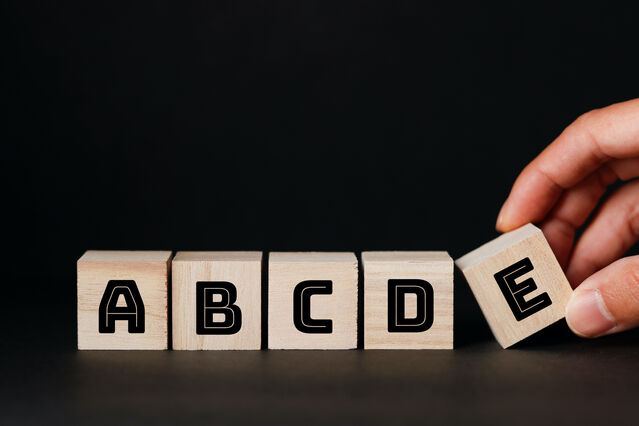Persuasion
The ABCDE's on How to Influence Emotionally Unstable Individuals
Part 1: A roadmap for dealing with emotionally unstable people.
Posted May 18, 2021 Reviewed by Chloe Williams
Key points
- People who are emotionally unstable may react in unexpected ways with rapid mood shifts that are hard to understand.
- Some indicators of emotionally unstable individuals include displaying outbursts disproportionate to the circumstances and having a short fuse.
- An approach outlined by the acronym ABCDE can help in dealing with emotionally unstable people.
- Some steps in the process include assessing the person's emotional stability, defining boundaries, and learning to communicate effectively.

In my last post, I covered some tips on how to use influence tactics on a narcissist, if you have to unfortunately deal with one at work. In this next series, I want to cover emotionally unstable individuals and how you can engage and take action if you have one in your life. I want to correlate the work I have done as a professional social engineer, or expert communicator, to lessons we can all use in relationships we have with others.
Before I even start, let me help define what I mean by someone who is emotionally unstable. First, you must be aware of some of the key factors that make up someone who is emotionally unstable. There are many sources you can use to find such indicators, like the DSM-5 or many of the blogs and writings on Psychology Today, dozens of books from well-known psychologists, and others who have studied and had to work with people with all manner of pathologies.
Many journals define those who are emotionally unstable as having mercurial temperaments. They may react in unexpected ways with rapid mood shifts that are oftentimes inconsistent and hard to understand.
How to Identify Someone Who Is Emotionally Unstable
I am a fan of Joe Navarro’s work because he writes in terms that are easier for the “lay person” to understand. In his book, Dangerous Personalities, he lists about 125 different potential indicators of someone who is emotionally unstable. I picked out 14 that I think stand out:
- Displays of intense anger and outbursts are very disproportionate to the circumstances or the event.
- Behaves in ways that at times are “inappropriate” or “outrageous.”
- Relationships are a “roller coaster” of highs and lows.
- Seems to “fall apart” under stress with some frequency.
- Arguments that should last a few minutes may go on for hours or days with no effort to ameliorate or end them.
- Intense anger has been observed toward family members.
- Verbal altercations seem to be a way of life for him or her.
- You can’t seem to relax, chill out, or “stand down,” around this person.
- Fellow workers describe him or her as “trouble,” “difficult to work with,” “irritating,” or “impossible.”
- At times, behavior seems theatrical or over-dramatic for the circumstances.
- Is described by others as “unpredictable,” “unreliable,” or “unstable.”
- Has a “short fuse” and frustration level is very low.
- You have felt reluctant to speak, to act or to take action out of fear of this person’s reactions toward you or that they may hurt themselves.
- Uses humiliation as a form of punishment.
If you are involved with a person who has all of these traits realize they need professional help. Remember, I am trying to help you learn how to use some of the skills I have practiced over my career and wrote about in my latest book, Human Hacking: Win Friends, Influence People and Leave them Feeling Better for Having Met You, and to apply this to any dealings you have with emotionally unstable individuals. That may include helping them agree to get professional therapy.
ABCDE: A Roadmap for Dealing with Emotionally Unstable People
When it comes to the emotionally unstable, there is a specific roadmap we need to discuss before we can arrive at that endpoint. This roadmap follows an easy-to-remember acronym, ABCDE.
Assess: You need to first learn how you can assess if you really have an emotionally unstable person in your life that you must deal with. Learning to recognize the signs I mentioned above can help you in your assessment.
Boundaries: Have clear boundaries in your mind on what you will and will not tolerate. Defining the boundaries as well as how you might handle yourself in an emotionally charged situation can help keep those boundaries safe.
Communication: Learning how to communicate effectively with an emotionally unstable individual can be difficult but it is very possible, especially using the human hacks or shortcuts I will discuss in this series.
Decide: Decide if you are in harm’s way and then decide how you will take action to keep yourself and others safe, physically and mentally.
Engage: There are some human hacking shortcuts that I have used in my career that you can utilize to take action.
I want you to spend some time thinking about what each of these means to you personally, and in my next post, I will break down the elements of ABCDE, discuss why they are so important and how you can use them.
Copyright © 2021, Christopher Hadnagy.


